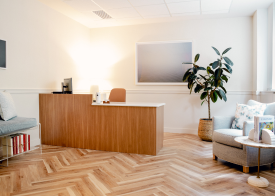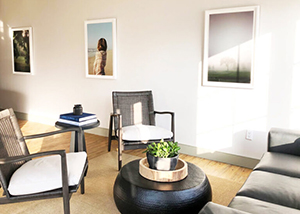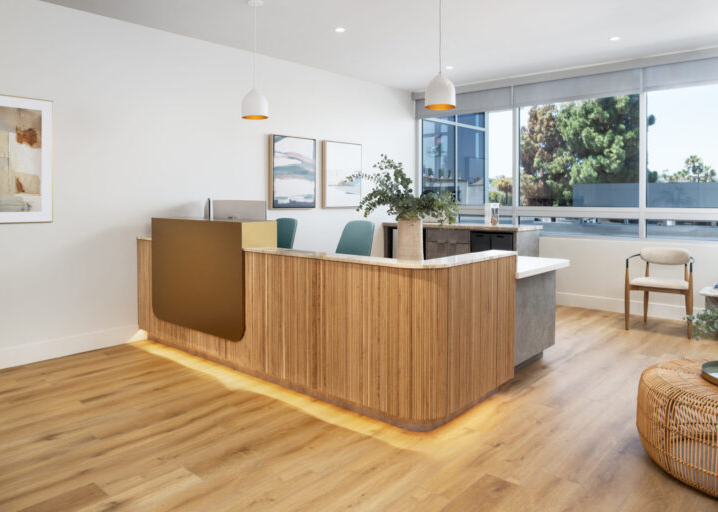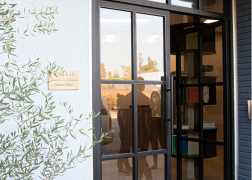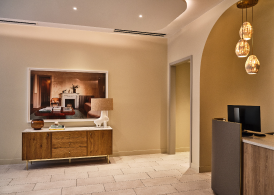How does your anxiety manifest itself these days?
I feel it physically. It’s deep in my body, with heart palpitations, digestive issues, sweats, pain. But it’s also a soul-ache. It gets heavy, and it makes it hard to face the day or sometimes even get out of bed.
What are the steps you take to deal with your anxiety?
I try to engage in self-care. I allow myself space to rest. I know when I need to stop and take a break, give myself the day off. I talk about it, which is such a big deal—I’m someone who likes to confront social problems, and fighting stigmas around mental illness is almost therapeutic. I’m in therapy, on medications. It’s all a process, and I’m constantly moving past treatments which don’t work and trying new things. I recently had a cold plunge pool installed, and that’s hopefully going to be helpful.
Can you shake the anxiety quicker, or does it depend on the day?
Sometimes, or it’s more like some days I am better at working through it. I can’t tell you exactly why that happens though. I wish I knew exactly what the thing was that allowed me to go to work one day but didn’t show up the next.
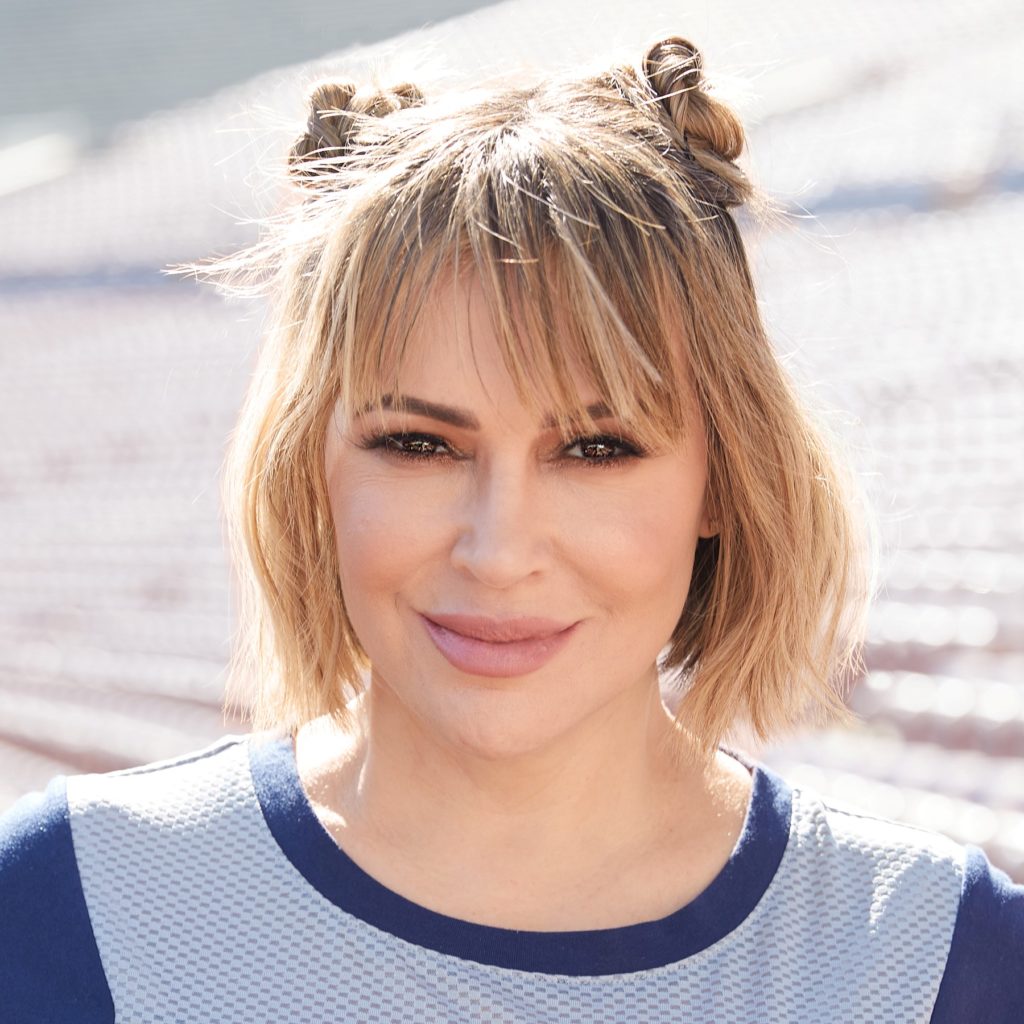
“Anxiety is real. It’s not ‘all in your head.’ It is a medical condition, and we need to treat it like a medical condition and not a fabricated, imaginary problem.”
How do your family and friends react to/interact with your anxiety?
I couldn’t do this without the people who love me. I’ve got a close family and social circle, and they know everything. They are supportive, caring, understanding, there for me. Having that security helps me deal with the people who either don’t understand, or worse, try to use my mental health as a weapon against me.
What are some important things you’ve learned about anxiety (yours and others)?
It’s real. It’s not “all in your head.” It is a medical condition, and we need to treat it like a medical condition and not a fabricated, imaginary problem. It’s not just “I feel nervous,” it’s “Oh my god, this is more than I can bear.”
When and how did you decide to become an advocate for anxiety disorders?
When I realized I was hiding what was wrong with me when I couldn’t work, and it was because of the fear of the stigma attached to anxiety disorders. Like I said, I have a platform and I have a mindset that is already really aligned with fighting injustices and tearing down biases. It became a natural fit. Mental healthcare is healthcare, and I was already fighting for healthcare. It seemed like I had to become an advocate for mental healthcare and people with anxiety disorders.
“Women are less often believed, more often told that it is all in their head. The term ‘hysterical’ is gendered. But men have a harder time admitting to anxiety—it ties into our toxic and messed-up view of what masculinity is or is supposed to be.”
What are the things you are doing to change the perception of anxiety?
I’m talking about it, publicly. I try to get other celebrities to talk about it. I recognize the value of a platform, and I use mine as much as I can. And I work behind the scenes, trying to get lawmakers to enact, protect, and expand policies—like the mental health parity that came as part of the Affordable Care Act—which normalize mental healthcare and provide access to that care.
Do you think that the perception of anxiety is different across gender lines?
Absolutely. It’s not to say that it’s easier or harder, necessarily. But women are less often believed, more often told that it is all in their head. I mean, the term “hysterical” is gendered. But men, I think, have a harder time admitting to anxiety—it ties into our toxic and messed-up view of what masculinity is or is supposed to be.
How do you think the pandemic and other issues around the world affect our general anxiety?
I mean, how could it not? People have been necessarily isolated, millions of people around the world have died, access to mental healthcare has been significantly curtailed, social injustices have been exacerbated, local, national, and global economies have been disrupted. There is a ton of uncertainty, a seemingly unlimited supply of pain, an epidemic of loneliness. Mental health really suffered for so many of us during the past two years.
In five years, how would you like the perception of anxiety to change?
I would like everyone who is suffering from anxiety to be able to go to their boss and say “I need to take a sick day today. My anxiety is really bad,” just as easily as they can say the same thing about a cold. I’d like people to be able to go to the doctor and receive treatment, just the same as with a cold. I’d like the world to see anxiety the same as any other medical condition—treatable, real, understandable, and deserving of compassion.



